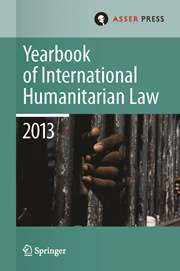Article contents
CONTROLLING THE RECOURSE TO WAR BY MODIFYING JUS IN BELLO*
Published online by Cambridge University Press: 02 November 2010
Abstract
According to a bedrock principle of international law, the rules regulating the recourse to war and the rules regulating conduct during war must be kept conceptually and legally distinct. The purported independence of the two domains – the ‘separation principle’ – remains unstable despite its historic pedigree. This essay explores recent developments that threaten to erode the separation. The author analyzes, in particular, doctrinal innovations that result in the regulation of the recourse to war through alterations of jus in bello. International and national institutions have incentivized states to pursue particular paths to war by tailoring the rules that regulate conduct in armed conflict. Some warpaths are accordingly rewarded, and others are penalized. The article then explores potential consequences, first, on state behavior involving the use of force and, second, on state behavior involving the conduct of warfare. One significant conclusion is that these recent developments channel state behavior and justifications for using force toward security-based and strategic rationales. These efforts – whether intended or not – risk suppressing ‘desirable wars’ and inspiring ‘undesirable wars.’ These recent developments also undercut humanitarian protections by undermining the mechanisms for compliance with legal norms on the battlefield.
- Type
- Articles
- Information
- Copyright
- Copyright © T.M.C. Asser Instituut and the Authors 2009
References
* © R. Goodman, 2010.
- 1
- Cited by


